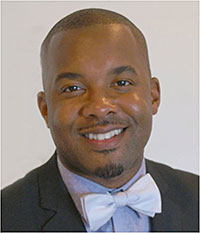On Sept. 11 — just one week into the 2014 National Football League season — running back Adrian Peterson was indicted on charges of beating his 4-year-old son with a tree branch. In the uproar that followed, Peterson was suspended from professional football and pilloried by pundits left and right.

Jeffrey Q. McCune Jr., PhD, associate professor at Washington University in St. Louis, has written widely on issues relating to masculinity, particularly black masculinity, as well as performance studies and popular culture.
McCune, who has joint appointments in the Women, Gender, and Sexuality Studies program and the Performing Arts Department, both in Arts & Sciences, shares his thoughts:
“Adrian Peterson’s acts of abuse — his performance of punishment — are symptoms of a nation that continues to use violence as a mode of discipline. This is an American problem.
“From the beginning of Africans’ presence in America as slaves, ‘lashing’ has been used to control and discipline. Indeed, one could cite several examples in white, brown, and black communities where physical punishment has been utilized in the domestic sphere of people’s homes. All in the name of discipline or control.
“It is important to note that while Peterson’s discipline was performed under a rubric of love or “good fathering,” it is clear — examining texts in which he admits to being unaware of the severity of his lashes — that he interpreted his son’s lack of response as not experiencing pain. This is an allegory for the many ways that masculinity covers pain. It also tells us about how Peterson’s own masculine understanding informs his practices of discipline — as if his son, 4-years-old, could take such a beating.
“Historicizing or contextualizing Peterson’s acts is not to be confused with excusing them. The abuse of children is inexcusable. But the overwhelming attention now given to black disciplinary practices also is inexcusable. It suggests that these crimes of violence are endemic to, or particular within, black communities — suggesting a bad theme that black folks do not know how to love their children.
“THIS is wrong. In essence, we are witnessing the heightened attention that is frequently given to black men who violently act out. Peterson is one such case. But egregious and violent acts happen across various communities in this country.
“For me, it is not enough to recognize the error of Peterson’s ways. Most agree that his acts were beyond troubling. If we truly believe the violence Peterson and others employ should be admonished — in conversation with the events of Ferguson, Mo., and other communities nationwide — we must also turn our attention to the system of state violence, along with white, privileged individuals and communities which often dodge the gaze of reprehension.”